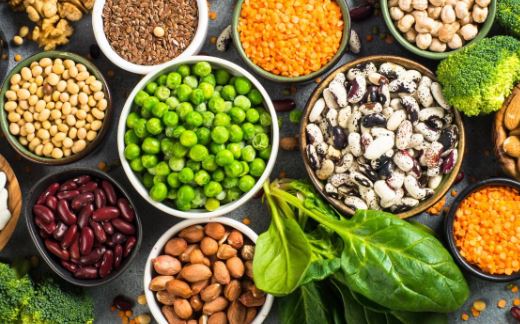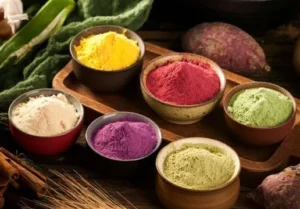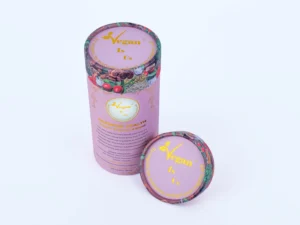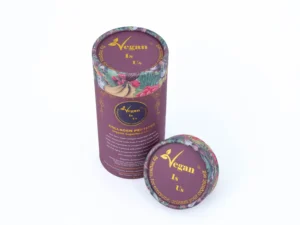Debunking Myths About Plant-Based Protein: Top Myths Debunked
Vegan and plant-based diets continue to grow in popularity, but myths about plant-based protein remain. Many people still wonder whether a vegan or plant-based diet can provide enough protein. In this post, we’ll clear up these misconceptions and show how easy it is to meet your protein needs with a balanced plant-based diet.
Myth 1: Plant-Based Proteins Are Incomplete
One of the most common myths about plant-based protein is that it’s incomplete. The idea is that plant proteins lack one or more essential amino acids. While some plant-based foods may not contain all essential amino acids in the same proportions as animal-based proteins, they’re not incomplete.
The body can combine amino acids from different meals. This means you don’t need to worry about combining proteins at every meal. By eating a variety of plant foods such as beans, grains, and vegetables, you can easily get all nine essential amino acids.
For instance, quinoa, lentils, and oats provide the full range of amino acids when eaten as part of a diverse diet.
Myth 2: You Need Protein Supplements on a Vegan Diet
Some people believe that vegans need protein supplements, especially if they are active or athletic. However, most people can meet their protein needs from whole plant-based foods. The recommended protein intake is 0.8 grams per kilogram of body weight, which is easily achievable with plant foods.
For example, a cup of cooked lentils has 18 grams of protein, while quinoa provides 8 grams. Even a peanut butter sandwich can offer 15 grams of protein. These are all plant-based options that meet protein needs without supplements.
Supplements may be useful for athletes or bodybuilders, but they are not essential for everyone. Whole foods provide additional health benefits, like fibre and antioxidants, which supplements can’t offer.
Myth 3: Animal Protein Is Superior to Plant-Based Protein
Many people believe that animal protein is better because it has a higher biological value (BV). While animal proteins have a slightly higher BV, this isn’t the only measure of protein quality. Many plant-based proteins, like soy, hemp, and pea protein, are highly bioavailable.
For example, soy is a complete protein, meaning it contains all nine essential amino acids. Hemp protein is another great option, providing not just protein but also omega-3 fatty acids, fibre, and antioxidants. Pea protein is digestible and offers a full amino acid profile.
A plant-based diet has other health benefits too, such as being lower in cholesterol and saturated fats. This helps reduce the risk of chronic conditions like heart disease and diabetes.
Myth 4: Children on Vegan or Plant-Based Diets Are at Risk of Protein Deficiency
Some critics argue that plant-based diets are not suitable for children. They claim vegan diets put children at risk of protein deficiency. However, studies show that children on well-planned vegan diets grow and thrive just as well as their peers.
Plant-based protein sources like beans, tofu, and quinoa provide ample protein for children’s growth. Fortified plant milks also provide calcium and vitamin D. A varied diet ensures that children get all the nutrients they need.
If you’re concerned about your child’s diet, it’s helpful to consult a nutritionist or pediatric dietitian. But with proper planning, a vegan diet can support healthy development.
Myth 5: Vegan Diets Have Limited Protein Sources
Some believe that plant-based diets have limited protein options, but this is far from true. The plant kingdom offers a wide variety of protein-rich foods that are easy to include in meals.
Here are some top plant-based protein sources:
- Legumes: Lentils, beans, chickpeas, and peas are protein-packed and can be used in soups, salads, and stews.
- Whole Grains: Quinoa, oats, farro, and bulgur provide plenty of protein and are also rich in other important nutrients.
- Nuts and Seeds: Almonds, chia seeds, flaxseeds, and sunflower seeds are full of protein and healthy fats. They can be added to smoothies or enjoyed as snacks.
- Soy Products: Tofu, tempeh, and edamame are high in protein and can be used in a variety of dishes, from stir-fries to sandwiches.
- Plant-Based Protein Powders: Pea, hemp, and brown rice protein powders are great ways to boost your protein intake, especially if you’re active.
These options ensure that you can easily meet your protein needs while following a plant-based or vegan diet.
Myth 6: You Can’t Build Muscle on a Plant-Based Diet
Some people worry that a plant-based diet won’t support muscle growth or maintenance. However, many top athletes and bodybuilders follow vegan diets and build muscle just as effectively as those on omnivorous diets.
Protein-rich plant foods like tempeh, seitan, and legumes are perfect for muscle repair and growth. Seitan, made from wheat gluten, is one of the highest protein plant foods and can be used in a variety of meals. Tempeh, another protein-rich option, is versatile and can be used in stir-fries, salads, or sandwiches.
With the right balance of protein and calories, building muscle on a vegan or plant-based diet is absolutely possible.
The Takeaway
Protein deficiency is extremely rare for those following a balanced plant-based or vegan diet. By eating a variety of protein-rich foods like legumes, grains, tofu, tempeh, and seeds, you can easily meet your protein needs and support an active, healthy lifestyle. These myths about plant-based protein are outdated, and with the right knowledge, anyone can thrive on a vegan or plant-based diet. So explore our range of vegan and plant-based protein-packed superfoods at Vegan Is Us and fuel your plant-based journey!
Frequently Asked Questions Section
1. Can I get enough protein without supplements on a vegan diet?
Yes, most people can meet their protein needs through whole plant-based foods. Legumes, tofu, quinoa, and nuts are great sources of protein. Supplements are only needed for specific dietary needs.
2. Is plant-based protein as effective as animal protein?
Yes, many plant-based proteins, such as soy, hemp, and pea protein, are highly bioavailable and provide excellent nutrition. They also come with additional health benefits, like fibre and antioxidants.
3. How can I ensure my child is getting enough protein on a plant-based diet?
Children can thrive on a plant-based diet by consuming a variety of protein-rich foods like beans, tofu, soy milk, and quinoa. A balanced diet, with guidance from a pediatric nutritionist, ensures their nutritional needs are met.
4. Do I need to combine proteins at every meal on a vegan diet?
No, you don’t need to combine proteins at every meal. The body can combine amino acids from different meals throughout the day. A varied diet ensures you get all the essential amino acids.
5. Can I build muscle on a vegan diet?
Yes, you can build muscle on a vegan diet. Many athletes and bodybuilders thrive on plant-based diets. Foods like tempeh, seitan, and legumes provide the necessary protein to support muscle growth.







